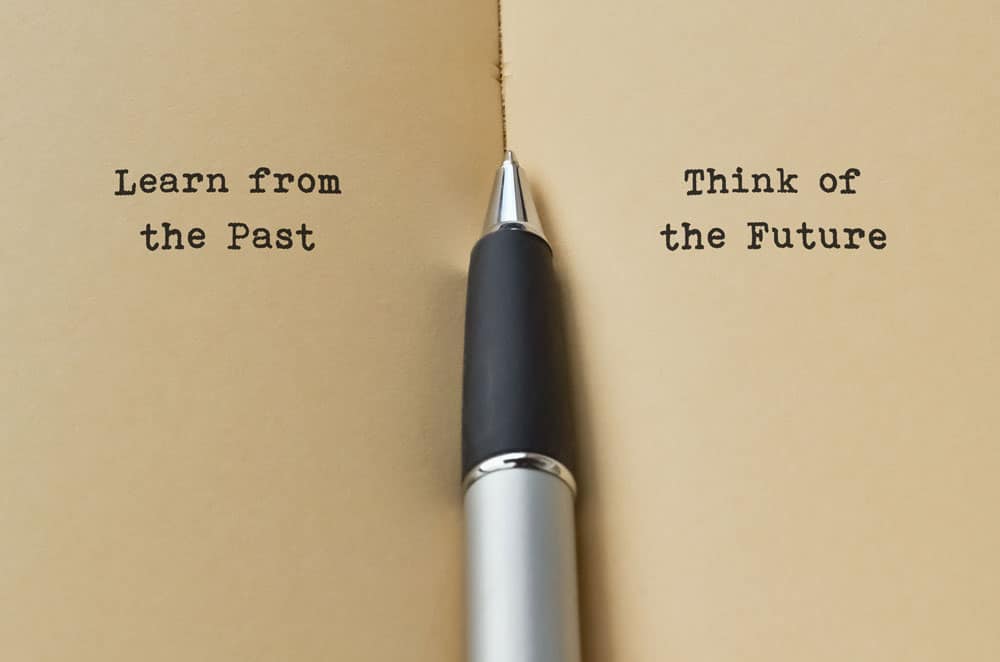By Alanna Hilbink
Everyone has regrets. Things we wish we hadn’t done, had done, or had simply done differently. Sometimes it’s easy to let these should-haves and could-haves go. Other times, the past begins to creep into our daily thoughts. Regrets can greatly impact our mental and physical health and take away from our enjoyment of the here and now. Learning how to let go of regrets can make a real difference in our quality of life, our ability to appreciate the present, and our future choices.
Regrets can greatly impact our mental and physical health and take away from our enjoyment of the here and now.
Who Has Regrets?
Regret is common, but what we regret depends on our past, our present, and even where we live. For example, DailyMail.com reports that in the UK, 50% of divorcees regret their decision. Whereas in the US, only 27% of women and 39% of men express regret about getting divorced.
The National Library of Medicine shares from the Personal and Social Psychology Bulletin the most common areas of regret, in descending order of commonality:
- Education
- Career
- Romance
- Parenting
- Self-Improvement
- Leisure
- Finances
- Family
So, we know what our regrets may focus on, but what exactly is regret?
Defining Regret
Understanding regret can help us move past it. The Psychology Bulletin explains regret as “a negative emotion predicated on an upward, self-focused, counterfactual inference. Regret feels bad because it implies a fault in personal action: You should have done it differently, hence self-blame is a component of regret.” That is to say, regret is based on false assumptions. It is something you create in your mind and place on yourself. This doesn’t make the experience of regret and its effects any less real, but knowing that it is self-created and subjective rather than factual and objective can help us contextualize regret and move past it.

How to Let Go of Regrets
If regret is a matter of perception, then the goal is to change this perception and learn how to stop regretting the past so that it doesn’t define your future. You can start with some of the following simple steps:
- Decide Today to Let Go
If you’re here, reading this article, you’re ready to make a change. Now is the time to do it. Make an appointment with a therapist or reach out to us here at The Meadows for guidance as to how to get started and what comes next.
- Explore Your Regrets
You have probably been mentally skirting around your past while also constantly thinking about it. Really look at your memories and feel your feelings. This step is a great place to get support from a mental healthcare professional. A therapist can help you navigate and process your memories so that you can safely and finally move on.
- Own Your Past Actions
Acceptance of the past is key. What happened, happened. Acknowledge your actions and their effects without blaming or beating yourself up. By taking responsibility for something or making amends, you are learning how to forgive yourself for past mistakes.
- Practice Mindfulness and Self-Compassion
If you’re wondering how to stop punishing yourself for what you cannot change, mindfulness and meditation are powerful tools for putting yourself in the present and being kind to yourself. Nordic Psychology shares that ruminating about the past creates feelings of depression, and that those who practice mindfulness are less depressed and less focused on what they cannot change about the past.
Learning From Our Mistakes
One final step in how to stop regretting the past is to use the past to create a better future. As you explore your regrets in order to let them go, you can also learn from them. Regrets allow you the opportunity to practice self-forgiveness and mindfulness to become a better person and make better choices going forward. They can be a source for personal improvement and positive change. And regrets can be the impetus you need to get professional help for yourself or a loved one.
You don’t want your past to define your present, but you do want it to shape better choices in the future.
Moving Forward Without Regret
You’re ready to learn how to stop punishing yourself. You’re ready to stop the constant rumination and recrimination and start fresh. You don’t want your past to define your present, but you do want it to shape better choices in the future. You can do all of this. And we at The Meadows can help. We meet you where you are and offer what you need for your healing journey, no matter your past. Reach out today to learn more about our proven treatment and therapy options that can help you create a brighter future.

